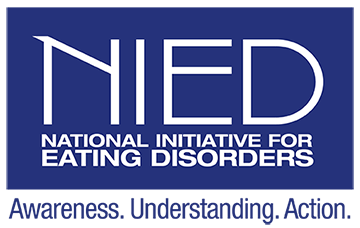
Objectives
NIED believes excellent guidelines, resources and educational resources already exist about Eating Disorders, but may not always be adapted to be used by different people in their day-to-day lives.
NIED is developing new educational programs and resources that focus specifically on improving the communications and collaboration skills of all team members involved in helping improve well-being and supporting recovery from Eating Disorders.
Over the last few years, stakeholders from across Canada have shared specific needs with us:
Caregivers need tips and tools to support recovery and manage day-to-day challenges.
Primary care providers, including medical doctors and their staff only have a few minutes to prepare before seeing a patient presenting with a complex mental illness like Eating Disorders. They need evidence-based information on how to support treatment and recovery, including:
- How to appropriately start a conversation with a patient presenting with an Eating Disorder
- How to better refer someone to appropriate care
- How to design a care plan
- How to support transitions between different types of support and care
People across Canada say that “there is nothing where they live” or that “their provider does not have the confidence or competencies” to appropriately treat an Eating Disorder.
We aim to not only improve communication and collaboration skills of team-members involved in the care and support of people recovering from Eating Disorders, but also to improve the strength of connections between team-members (in line with existing clinical practice guidelines, mental health standards of care and principles of shared care).
This experience and the rich feedback we received prompted NIED to establish a Caregivers and People with Lived Experience Advisory Committee in 2019.
In 2020, we will engage people at-risk, recovering or recovered from an Eating Disorder to co-design new educational tools and resources that focus on them and their experiences. These resources will help them meet their day-to-day needs[1] across various parts of a person’s recovery journey.
